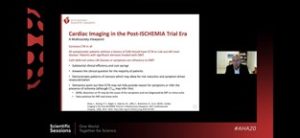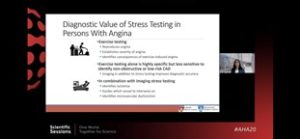A Fellows to a Fellow: resources for cardiology fellows
The excitement continues as 3rd year general cardiology fellows wrap up their training in these last few months. Those pursuing advanced training in interventional cardiology find themselves at a crossroads as they begin a year of procedural training. Being one of those lucky fellows, I recently began searching for resources to help me get started with the transition. This list is definitely not exhaustive, but I hope you find it helpful for those going down this pathway.
Here are my go-to resources to help me get started in interventional cardiology training.
- CRF (Cardiovascular Research Foundation) Fellows Course Connect
– This year, it will be presented in a virtual live-streamed format from May 7th-9th. One of the go-to courses every year that features key concepts in interventional cardiovascular medicine. Yes, it’s free for fellows.
https://www.crf.org/fellows/register - ARCH (Advanced Revascularization) Course – Hybrid
– Takes place both online and with limited in-person registration in St. Louis Missouri at the Ritz-Carlton Hotel. Has a dedicated Fellows course on Wednesday, April 14th, with the goal to prepare cardiology fellows for interventional practice. (Full scholarship included with registration)
https://archsymposium.com/april-2021-fellows-course/ - SCAI 2021 (Virtual) Scientific Sessions
Can’t miss the scientific sessions from SCAI, it’ll be loaded with tons of educational content geared towards interventional cardiology. Dr. Quinn Capers is scheduled as a Keynote speaker discussing “Black Lives Matter….In the Cath Lab, Too! A Role for Interventional Cardiology in Combating Racism”
https://scai.org/scai2021 - SCAI Fall Fellows Course
Tentatively scheduled for Dec 3-7th in Miami, Florida. Always considered one of the best interventional fellow courses to attend. Looking forward to this happening.
https://scai.org/event/2021-fall-fellows-courses - Interventional, Early Career, & FIT Monthly Case Discussions: High Risk and Complex PCI and Mechanical Circulatory Support
https://www.acc.org/Education-and-Meetings/Meetings/Meeting-Items/2021/02/18/19/44/Webinar-Int-EC-FIT-Monthly-Cath-Case-Discussions-High-Risk-PCI - CRT 2021 Virtual
From Feb 13 – April 24, 2021, every Saturday Morning. From live-stream discussions with the latest in interventional cardiology to live cases. Free registration is a plus.
http://www.crtmeeting.org - Emmanouil Brilakis’ youtube channel. The Manual of PCI (A Step-by-step approach) https://www.youtube.com/watch?v=ELu-yJ7USOU&list=PLrg6KBVL0GBqabghGLCgqbplSrGQEiHh4
Probably one of the most important youtube channels for all interventional cardiology trainees. If you haven’t started watching these videos, you’re missing out. The accompanying textbook (https://www.pcimanual.org/) is also a must-have.
Now there are also plenty more resources out there, but I felt that this was a good starting place for me. Hopefully, it helps someone.
“The views, opinions and positions expressed within this blog are those of the author(s) alone and do not represent those of the American Heart Association. The accuracy, completeness and validity of any statements made within this article are not guaranteed. We accept no liability for any errors, omissions or representations. The copyright of this content belongs to the author and any liability with regards to infringement of intellectual property rights remains with them. The Early Career Voice blog is not intended to provide medical advice or treatment. Only your healthcare provider can provide that. The American Heart Association recommends that you consult your healthcare provider regarding your personal health matters. If you think you are having a heart attack, stroke or another emergency, please call 911 immediately.”








